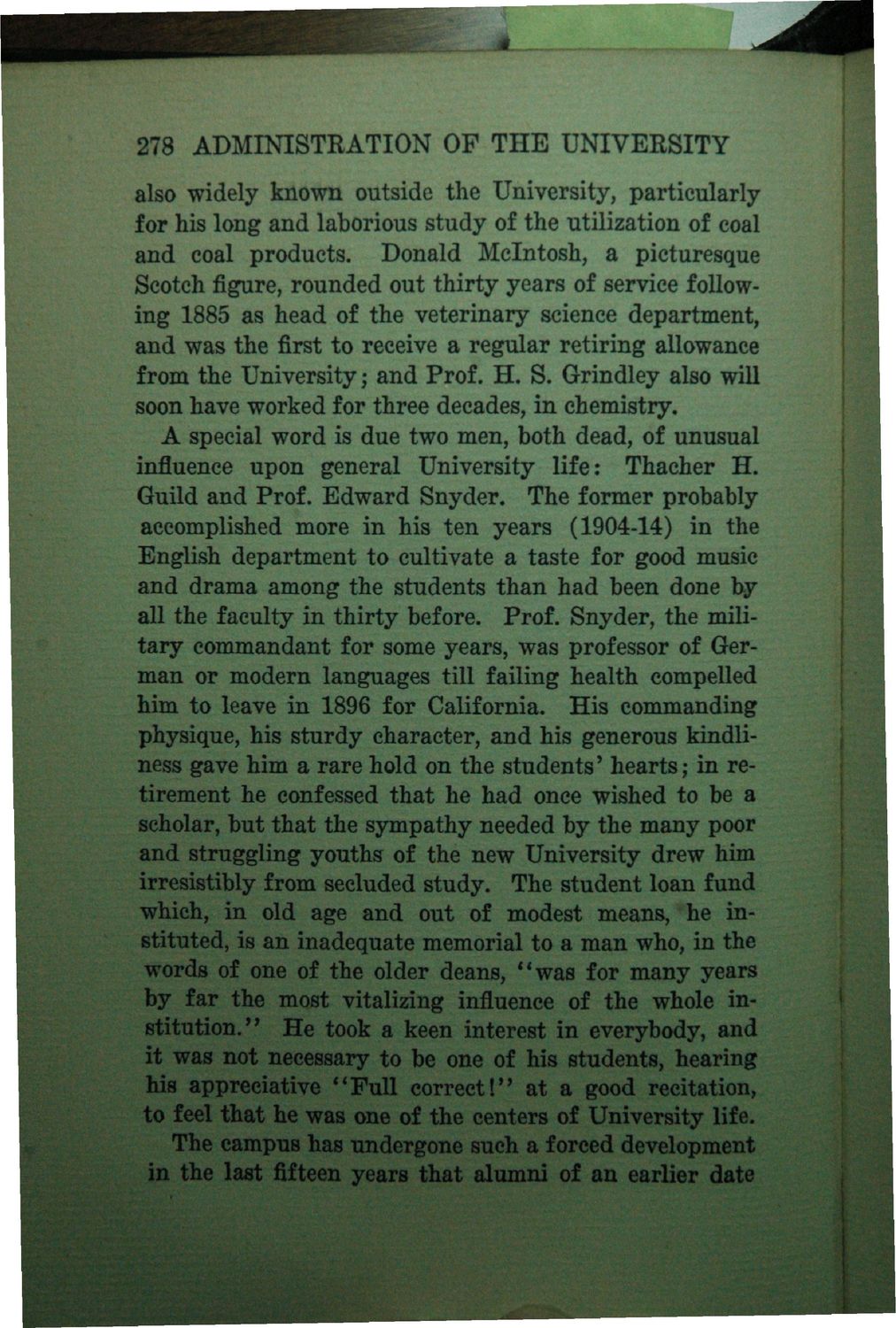| |
| |
Caption: Book - History of the University (Nevins)
This is a reduced-resolution page image for fast online browsing.

EXTRACTED TEXT FROM PAGE:
I 278 ADMINISTRATION OP THE UNIVERSITY also widely known outside the University, particularly for his long and laborious study of the utilization of coal and coal products. Donald Mcintosh, a picturesque Scotch figure, rounded out thirty years of service following 1885 as head of the veterinary science department, and was the first to receive a regular retiring allowance from the University; and Prof. H. S. Grindley also will soon have worked for three decades, in chemistry. A special word is due two men, both dead, of unusual influence upon general University life: Thacher H. Guild and Prof. Edward Snyder. The former probably accomplished more in his ten years (1904-14) in the English department to cultivate a taste for good music and drama among the students than had been done by all the faculty in thirty before. Prof. Snyder, the military commandant for some years, was professor of German or modern languages till failing health compelled him to leave in 1896 for California. His commanding physique, his sturdy character, and his generous kindliness gave him a rare hold on the students' hearts; in retirement he confessed that he had once wished to be a scholar, but that the sympathy needed by the many poor and struggling youths of the new University drew him irresistibly from secluded study. The student loan fund which, in old age and out of modest means, *he instituted, is an inadequate memorial to a man who, in the words of one of the older deans, "was for many years by far the most vitalizing influence of the whole institution.* ' He took a keen interest in everybody, and it was not necessary to be one of his students, hearing his appreciative "Full correct!" at a good recitation, to feel that he was one of the centers of University life. The campus has undergone such a forced development in the last fifteen years that alumni of an earlier date
| |